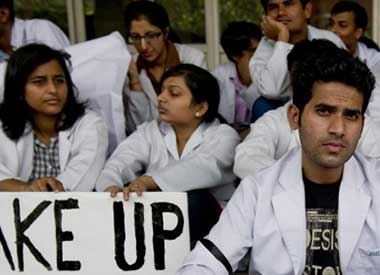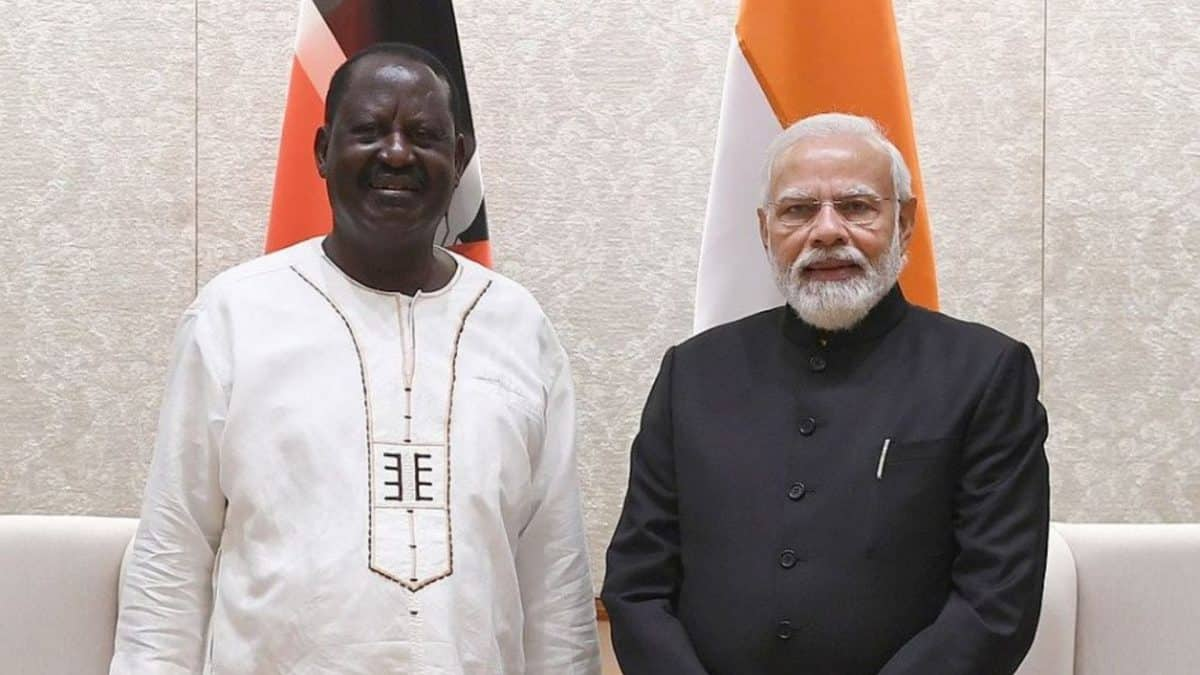The Medical Council of India (MCI) chief and two of his cohorts were arrested by the CBI in April 2010 on charges of corruption. That brought down the prestige of MCI by several notches and exposed the extreme rot that plagued the medical body. Also, that shameful event signaled that a thorough purge was needed in MCI to bring some order to its anarchic ways. It took more than seven years to move in that direction. The Union Cabinet finally cleared the long-pending National Medical Commission (NMC) bill on 15 December, 2017. The bill is likely to be tabled in Parliament in this winter session and if passed will replace the Indian Medical Council Act, 1956. [caption id=“attachment_4043633” align=“alignleft” width=“380”] Representational image. AFP[/caption] Ideally, the reform should have come from within the medical profession. But since that did not happen, it is now being imposed from outside. This, incidentally, looks like the first in many medical reforms that are likely to be enacted in the near future. Unfortunately, due to continuous doctor-bashing from all sides, the medical profession has developed a sense of despondency. It has become so paranoid in its outlook that every action, every course-correction that comes from outside is looked upon with suspicion. The knee-jerk reaction, therefore, is to reject such reforms. But an honest cursory look at the proposed NMC bill tells another story – it comes across as a well-intentioned move barring, of course, a few deficiencies that can still be rectified. The proposed bill opens by stating: “It aims to create a world-class medical education system”. It then goes on to introduce National Eligibility cum Entrance Test (NEET) to ensure uniformity in admission to undergraduate studies in medical schools. This pan-India entrance test has the potential to purge the medical admission process. It is aimed to ensure that only merit is counted in medical education. It is pertinent to note that even admission to private medical colleges will be based on NEET, which will abrogate the corrupt and unscrupulous practices that existed all along. It is most heartening to read the bill’s commitment to “equitable access to medical education”. It is very unfortunate that we lag far behind in quality medical research when compared to the western world. This has created a distinct disadvantage for India in regard to advances in health delivery system. The proposed NMC bill seeks to reverse this drawback. To facilitate it’s functioning, the bill constitutes four independently working boards: One for undergraduate medical education, one for postgraduate medical education, one for medical assessment and rating and the last one for maintaining the national medical register and regulating medical conduct.
With a phenomenal increase in the number of medical institutions, courses they offer at undergrad and postgrad levels, examinations they conduct at various levels and the number of students who pass out and join the medical practice; it is well in order that such a structured organisation is created to oversee and regulate the profession.
On the flip side, the most serious flaw the bill has is to completely do away with the elected representatives of the medical profession. With all its members coming as government’s nominees or by virtue of ex-officio government positions they hold, the National Medical Commission would look like just an extension of the health ministry. The fine balance that existed till now between the elected members and the nominated ones ensured a fair degree of autonomy for the regulatory body. It made sure that the policy decisions taken by the health ministry were checked and balanced by the council. That democratic tradition now seems to be coming to an end. The medical profession has been demanding absolute autonomy for its regulatory bodies. But if the government takes complete and unfettered charge of the council, it is goodbye to autonomy forever. Additionally, all the grants and funds to run the regulatory body will come from the central government, making it completely dependent and helpless. Clause 35 of the proposed bill raises a serious doubt – under the heading “Recognition of Other Medical Qualifications”, it states that the “central government may by notification recognise qualifications granted by any other body in India”. Does this mean other lateral streams of medicine (such as Homoeopathy, Ayurveda, Unani etc) are going to be accommodated under NMC and allowed to practice modern medicine? This ambiguity needs to be removed from the bill.
The bill is slated to be tabled in Parliament this session. It is hoped that these anomalies are corrected before passing it.
There are certain issues the regulatory body will have to urgently take note of. For one, the issue of standardisation of medical education is yet not sufficiently addressed. There are medical institutes that impart excellent education and train their students very well for independent practice. Then there are institutes that have a very poor infrastructure and insufficient faculty; thus unable to train their students for challenges of independent practice. All these students get their degrees and there is no way to tell one from another. If the sick are to reap the full benefit of health delivery system, standardised education and training will have to be given to every doctor coming out of the medical college. For two, the physician licensed to practice in one state has to register anew in another state if he wishes to practice there. It’s time the concept of reciprocity is introduced here; a common national register is maintained and the physician is allowed to practice anywhere in India. Lastly, it’s time to introduce medical or clinical audit in our health delivery system. If we want quality improvements in patient care and ensure favourable outcomes, a review system will have to be put in place that would ensure what should be done is being done. In conclusion, Laws are only as good or as bad as the way they are implemented. Repealing an act and replacing it with another is not necessarily the best way to usher in reform. It all depends upon the kind of people we appoint to implement the law; and how honestly, sincerely and competently they choose to implement it. The author is a consulting surgeon from Mumbai.


)




